Critical thinking development Extra Challenge Worksheets for Ages 4-7
5 filtered results
-
From - To
Elevate your child's cognitive abilities with our "Critical Thinking Development Extra Challenge Worksheets for Ages 4-7". Specially designed for young learners, these engaging activities focus on enhancing problem-solving and reasoning skills. Each worksheet offers a unique challenge to stimulate curiosity and intellectual growth. Our carefully curated exercises ensure that critical thinking becomes a fun and integral part of early education, preparing children for future academic success. Perfect for parents and educators seeking to foster a love for learning, these worksheets are an essential resource for developing young minds. Equip your child with the tools to think independently and creatively!
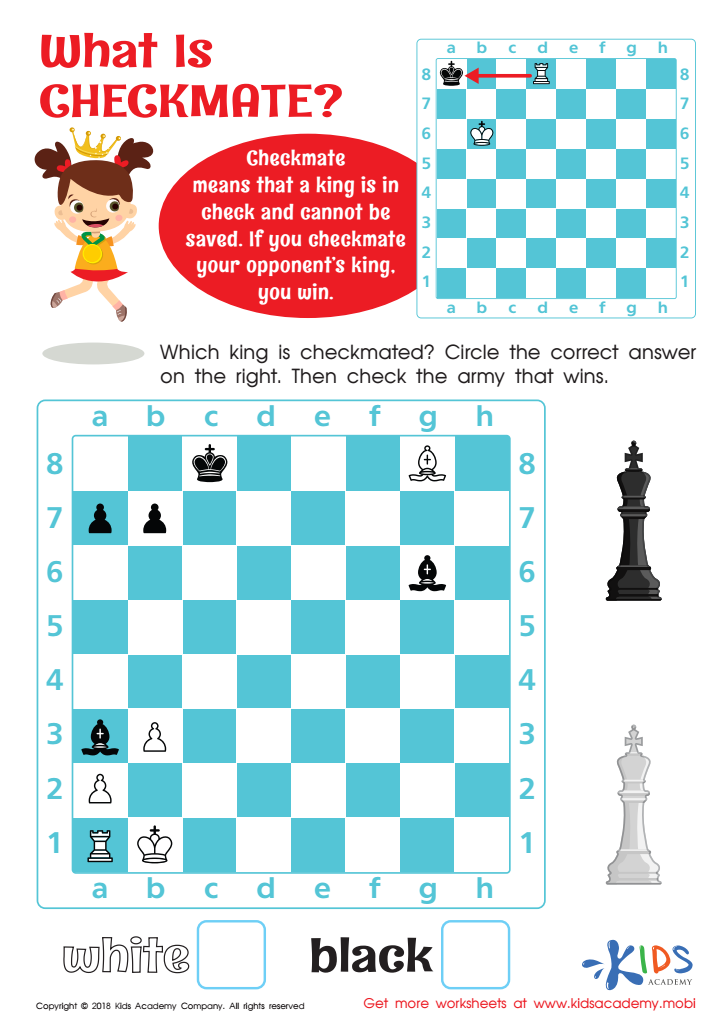

What is Checkmate? Worksheet
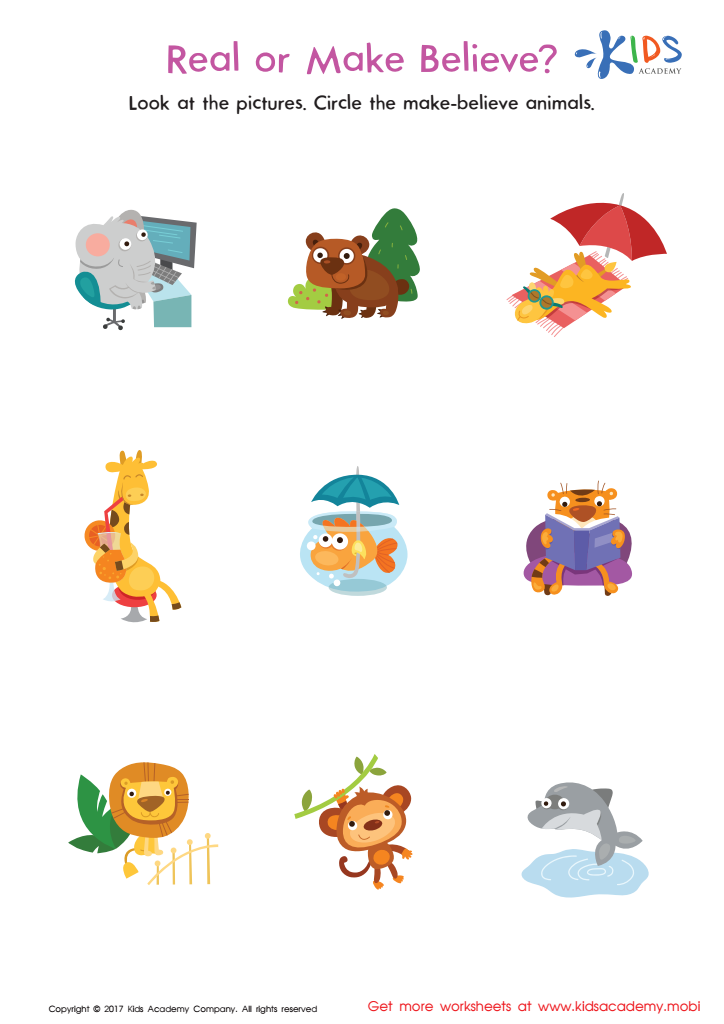

Fact or Make Believe Worksheet
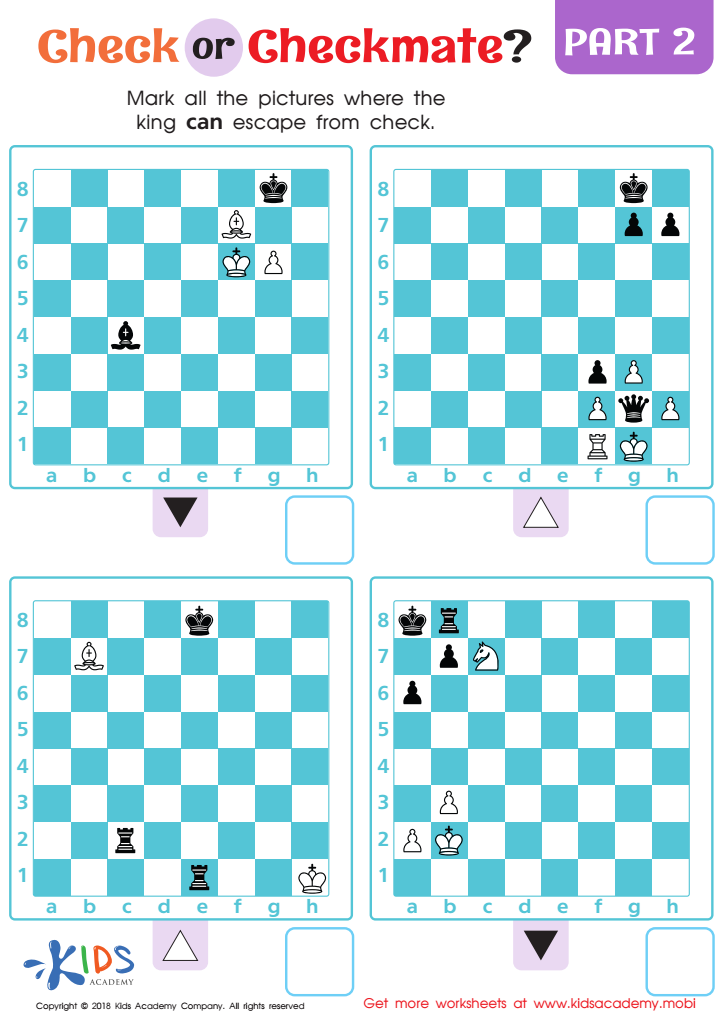

Check or Checkmate: Part 2 Worksheet
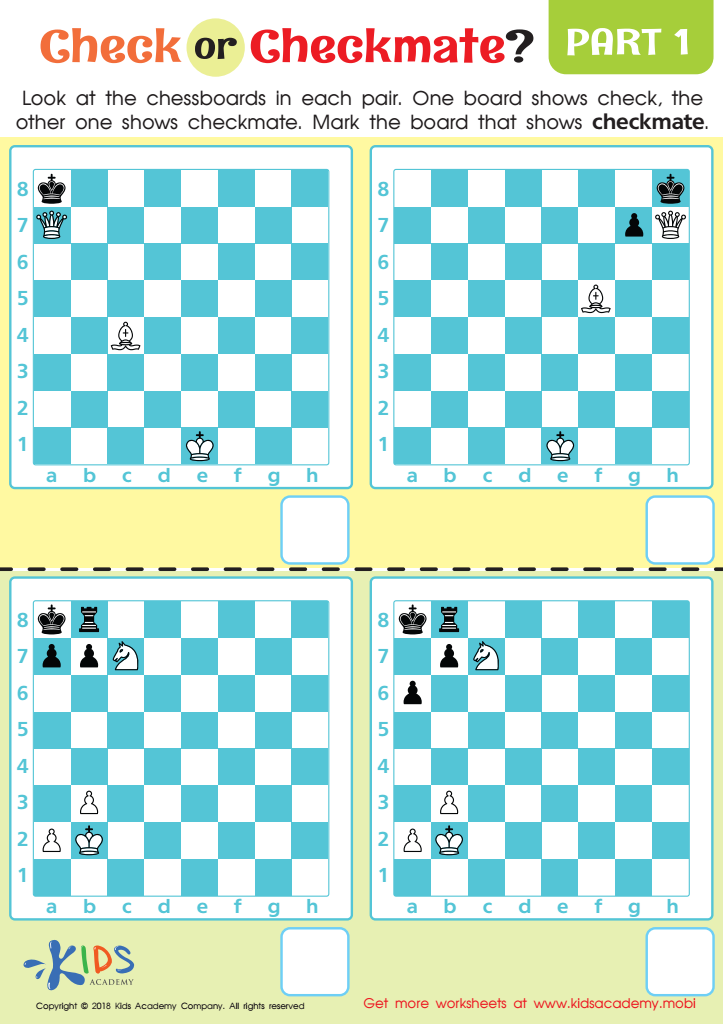

Check or Checkmate: Part 1 Worksheet
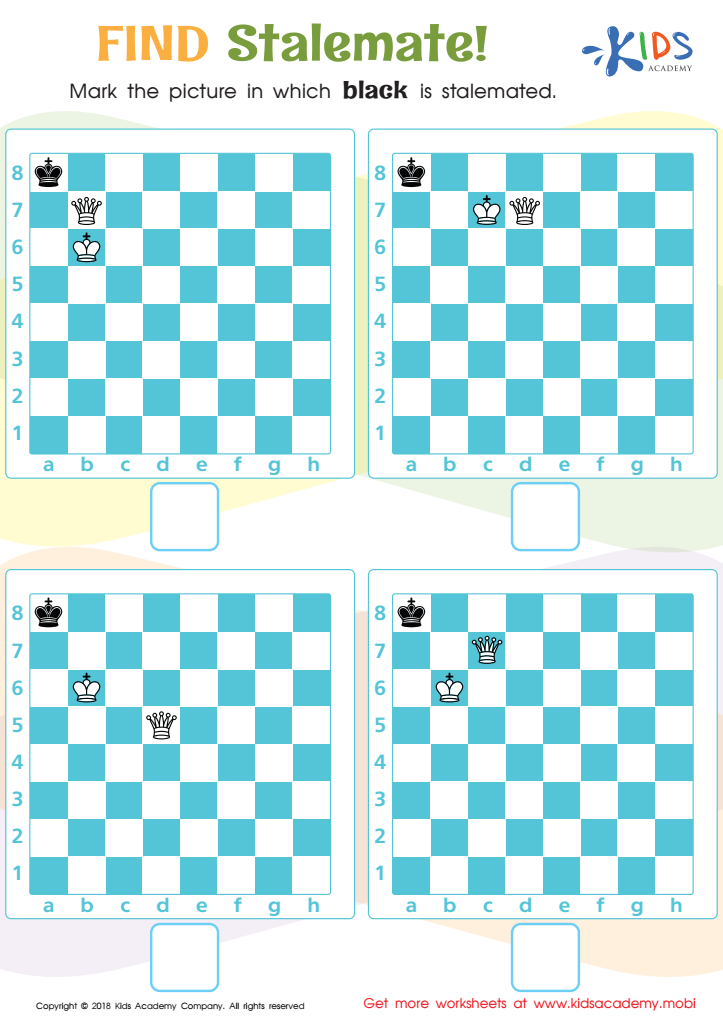

Find Stalemate! Worksheet
Parents and teachers should prioritize critical thinking development in children ages 4-7 because these early years form a crucial window for cognitive growth. During this period, kids are like sponges, soaking up information quickly and forming the foundations for future learning and problem-solving skills. Introducing critical thinking activities at a young age equips children with invaluable tools to analyze situations, make informed decisions, and think independently.
By engaging in critical thinking exercises, children learn to question, hypothesize, and explore various solutions to a problem. For example, simple games that require sorting or sequencing help develop patterns recognition and logic. Such skills are fundamental for later academic subjects, including math and science. Additionally, nurturing critical thinking fosters creativity and resilience, as kids understand that challenges can often have multiple solutions.
Moreover, strong critical thinking skills encourage better communication and social interaction. Children who are taught to think critically can understand others' perspectives, articulate their ideas more clearly, and resolve conflicts effectively. This becomes increasingly important as they interact in more complex social and educational environments.
Overall, focusing on critical thinking at an early age lays a robust groundwork for lifelong learning, enabling children to navigate the world with curiosity, confidence, and competence.

 Assign to My Students
Assign to My Students





















